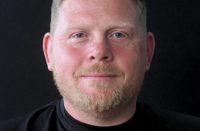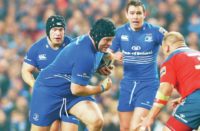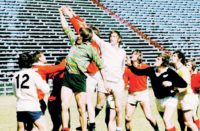THE FIRA-run European Super Cup is up and running and although it's very early days it could be a useful developmental tool for Europe's second tier nations and their clubs and franchise teams.
It is not, as Rugby Europe – the modern day equivalent of FIRA (Fédération Internationale de Rugby Amateur) – claims an entirely new idea or concept. They have been here before.
A full 33 years before even the Heineken Cup came into existence FIRA, fair play to them, came up with the Champions Cup – they should have patented the title which UEFA seems to have hijacked – which featured club champions from Romania, Italy, Germany, Spain, Portugal, Belgium, the old USSR and of course France who always had a foot in both the FIRA and the old Five Nations camps.
The tournament existed on a bi-annual basis for three editions and among other things illustrated just how strong Romania rugby was at the time and why the Five Nations blazers might have become a little alarmed.
After losing the first final to Béziers in 1962, CFR Grivita Rosie Bucuresti (formerly known as Locomotive CFR Bucuresti) won it in 1964 beating Mont-de-Marsan 10-0, then in the last edition of the tournament in 1966 before it was discontinued, Dinamo Bucuresti beat a very strong Agen side 18- 12 on aggregate over two legs.
After that, alas, it was discontinued mainly because the French Federation got cold feet and it was nearly 30 years before the Five Nations block borrowed heavily from the idea and staged their own competition.
“The really interesting team right now is Tel Aviv Heat”
This year's format is very simple: Eight teams divided into two pools of four; home and away fixtures before Christmas; top two to advance; two semi-finals in April, followed by a final in May.
The Eastern Conference features the Black Lion franchise from Georgia, Tel Aviv Heat from Israel and the Russian duo of Enisei-STM and Lokomotiv Penza. The Western Conference comprises the Brussels Devils, the Delta XV from the Netherlands, Lusitanos XV from Portugal and Castilla y Leon from Spain.
For the 2022-23 tournament the plan is to increase to 12 teams with Romania providing at least two of the additional sides. You would imagine that there is also the potential to approach Italy and see if two of their sides from the Top 12 competition, perhaps the last two winners Calvisano and Rovigo, might not be included. They would be roughly of same standard and their presence might help in terms of TV coverage.
The really interesting team right now is Tel Aviv Heat, the latest Israel-based sporting franchise to help promote the Israeli state and the Jewish cause. The most notable is the Israel Start-Up Nation cycling team which morphed from a modest Academy set-up in 2017 into a full-fledged world tour team three years later in 2022.
Israel Start-Up Nation have deep pockets and signed headline-making senior riders like Chris Froome and Dan Martin in the first year and although not a Jewish team as such are committed to helping Jewish and Israeli riders develop.
Tel Aviv, who also appear well funded, can probably be viewed through the same prism although on a considerably smaller scale at present. They have contracted 36 players and with a few known to us like the former Quins duo of Renaldo Bothma and Gabriel Ibitoye, Blue Bulls wing Sebastian Jobb and former Saints scrum-half Nic Groom. Players of all faith are included – as with the cycling team – but the Heat are committed to promoting Jewish players generally.
To those ends they have looked mainly to South Africa which is the only major rugby playing nation where the Jewish community has consistently produced top rate players over a period of time.
Former Montpellier, and occasional Harlequins fly-half before injury, Demetri Catrakilis has been leading the recruitment drive among South African Universities and clubs. Thirteen of the initial squad are from South Africa plus two South Africa-based Namibians.
The Jewish heritage in South Africa rugby is considerable with at least ten Springboks that I can recall. The best known would be Okey Geffen, who starred in their 1949 series win over New Zealand, and Joel Stransky who kicked that World Cup-winning dropped goal in 1995.



























